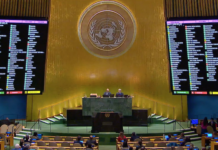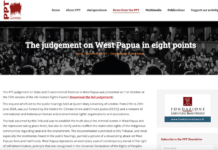The France24 Observers climate change report on Fiji featuring ePOP student journalists Koroi Tadulala and Telstar Edrie Jimmy. Video: France 24 Observers – in French
Pacific Media Watch Newsdesk
Broadcast student journalists from the University of the South Pacific have contributed on France 24 as part of the ePOP multinational network of broadcasters, NGOs and researchers who are telling frontline stories of climate change.
“France 24 is essentially the French BBC and Koroi Tadulala and Telstar Edrie Jimmy participated in their programme The Observers,” says USP broadcast lecturer Dr Olivier Jutel.
He thanked Mina Vilayleck from the Noumea-based Institute for Research in Development (IRD) for “bringing this ambitious project to Suva” and giving the journalism students this opportunity.
“And of course Max Bale and Matthias Balagny from Radio France-International who have shared their internationalist vision with our students. I hope we can continue to strengthen institutional and media relationships in this incredibly important work.”
The ePOP (eParticipatory Observers Project) concept was conceived by RFI Planète Radio (France Medias Monde) and developed with the IRD in partnership with the Tara Expéditions Foundation, Pacific Islands Development Forum, Organisation internationale de la Francophonie (OIF) and the University of the South Pacific with the support of Pacific Centre for Environment and Sustainable Development (PaCE-SD) Professor Elisabeth Holland, co-recipient of the 2007 Nobel Peace Prize with former US Vice-President Al Gore.
ePOP says on its Facebook page:
“This innovative project is built around an international network of young volunteers from the Pacific region.
“With a cooperative and participatory approach, the ePOPers shoot and edit video clips that capture the feelings of local populations facing the direct consequences of worldwide changes and global warming.
“The initiative aims to collect the findings, doubts and questions of the older generations, often relatives or members of their families, in order to question the scientific world and to obtain understandable answers for the communities, especially the elderly, who endure and suffer these daily disturbances.
“In line with the declared will of the international organisations, this human and inter-generational approach aspires to nourish the archives of the intangible human heritage of this region, which is the most impacted by climate change.”













































